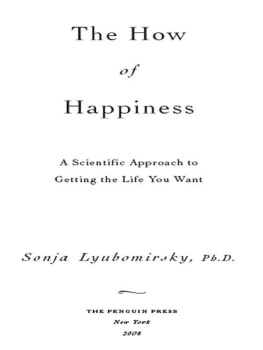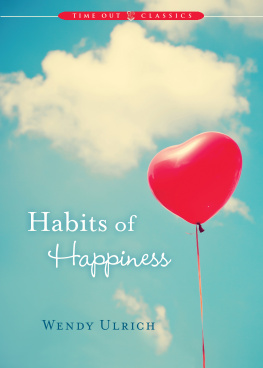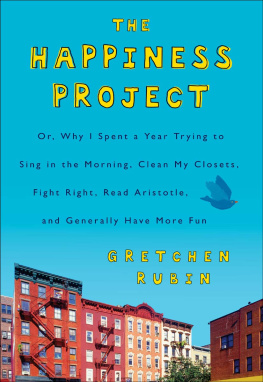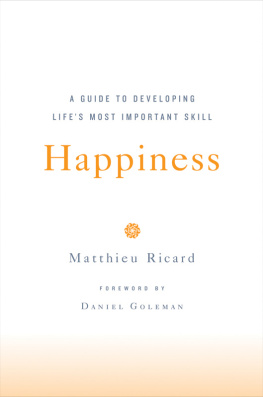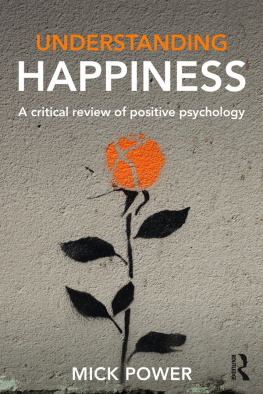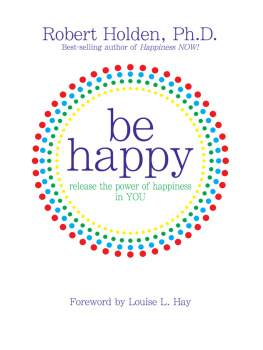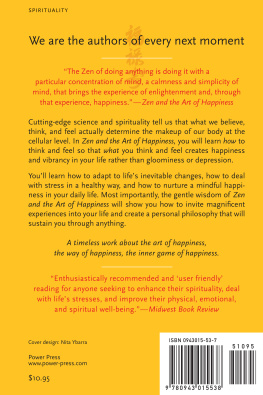The How of Happiness
A Scientific Approach to
Getting the Life You Want
Sonja Lyubomirsky, Ph.D.

THE PENGUIN PRESS
New York
2008
THE PENGUIN PRESS
Published by the Penguin Group
Penguin Group (USA) Inc., 375 Hudson Street, New York, New York 10014, U.S.A.
Penguin Group (Canada), 90 Eglinton Avenue East, Suite 700, Toronto, Ontario, Canada M4P 2Y3 (a division of Pearson Penguin Canada Inc.) Penguin Books Ltd, 80 Strand, London WC2R 0RL, England Penguin Ireland, 25 St. Stephens Green, Dublin 2, Ireland (a division of Penguin Books Ltd) Penguin Books Australia Ltd, 250 Camberwell Road, Camberwell, Victoria 3124, Australia (a division of Pearson Australia Group Pty Ltd) Penguin Books India Pvt Ltd, 11 Community Centre, Panchsheel Park, New Delhi110 017, India Penguin Group (NZ), 67 Apollo Drive, Rosedale, North Shore 0632, New Zealand (a division of Pearson New Zealand Ltd) Penguin Books (South Africa) (Pty) Ltd, 24 Sturdee Avenue, Rosebank, Johannesburg 2196, South Africa
Penguin Books Ltd, Registered Offices:
80 Strand, London WC2R 0RL, England
First published in 2007 by The Penguin Press, a member of Penguin Group (USA) Inc.
Copyright Sonja Lyubomirsky, 2007
All rights reserved
Grateful acknowledgment is made for permission to reprint The Journey from Dream Work by
Mary Oliver. Copyright 1986 by Mary Oliver. Reprinted by permission of Grove/Atlantic, Inc.
Library of Congress Cataloging-in-Publication Data
Lyubomirsky, Sonja.
The how of happiness : a scientific approach to getting the life you want / Sonja Lyubomirsky.
p. cm.
Includes bibliographical references and index.
ISBN: 978-1-1012-0280-7
1. Happiness. I. Title.
BF575.H27L98 2008 2007039942
158dc22
Without limiting the rights under copyright reserved above, no part of this publication may be reproduced, stored in or introduced into a retrieval system, or transmitted, in any form or by any means (electronic, mechanical, photocopying, recording or otherwise), without the prior written permission of both the copyright owner and the above publisher of this book.
The scanning, uploading, and distribution of this book via the Internet or via any other means without the permission of the publisher is illegal and punishable by law. Please purchase only authorized electronic editions and do not participate in or encourage electronic piracy of copyrightable materials. Your support of the authors rights is appreciated.
To Gabriella and Alexander,
the biggest hows behind
my happiness
THE JOURNEY
One day you finally knew
what you had to do, and began,
though the voices around you
kept shouting
their bad advice
though the whole house
began to tremble
and you felt the old tug
at your ankles.
Mend my life!
each voice cried.
But you didnt stop.
You knew what you had to do,
though the wind pried
with its stiff fingers
at the very foundations,
though their melancholy
was terrible.
It was already late
enough, and a wild night,
and the road full of fallen
branches and stones.
But little by little,
as you left their voices behind,
the stars began to burn
through the sheets of clouds,
and there was a new voice
which you slowly
recognized as your own,
that kept you company
as you strode deeper and deeper
into the world,
determined to do
the only thing you could do
determined to save
the only life that you could save.
Mary Oliver
The How of Happiness
FOREWORD
A ll of us want to be happy, even if we dont admit it openly or choose to cloak our desire in different words. Whether our dreams are about professional success, spiritual fulfillment, a sense of connection, a purpose in life, or love and sex, we covet those things because ultimately we believe that they will make us happier. Yet few of us truly appreciate just how much we can improve our happiness or know precisely how to go about doing it. To step back and consider your deep-seated assumptions about how to become a happier person and whether its even possible for youwhat I hope this book will spur you to dois to understand that becoming happier is realizable, that its in your power, and that its one of the most vital and momentous things that you can do for yourself and for those around you.
What are the meanings and mysteries of happiness? Is it possible to acquire more of it, and can new happiness ever endure? These are foundational questions to which I have devoted my entire career as a research psychologist. When I was beginning my investigations, as a twenty-two-year-old psychology graduate student, the study of well-being wasnt a well-regarded choice, the subject matter considered elusive, unscientific, soft, and fuzzy. But recently happiness has exploded as a hot topic in the social science community, a symptom, perchance, of the Western twenty-first-century individualistic zeitgeist.
Alas, has happiness today become a fad, like hula hoops, big hairdos, and Fonzie? It can certainly appear so, with the market saturated with newspaper and magazine pieces, television documentaries, books, quotes, blogs, and podcasts on the topic, the vast majority of which are relatively uninformed by empirical data. Not infrequently, this frenzy drives researchers like myself to want to keep a distance, yet I think its essential to engage in the national discussion about happiness and insist that it abide by strict scientific standards. Why? Because I believe deeply in the importance of the scientific study of happiness and well-being. The majority of people in the world, across vast continents and cultures, profess that being happy is one of their most cherished goals in lifefor themselves and, above all, for their children. Whats more, happiness offers myriad rewards, not just for the happy person but for his or her family, workplace, community, nation, and society. Working on how to become happier, the research suggests, will not only make a person feel better but will also boost his or her energy, creativity, and immune system, foster better relationships, fuel higher productivity at work, and even lead to a longer life.1 Happiness, in my humble opinion, is the Holy Grail, the meaning and the purpose of life, as Aristotle famously said, the whole aim and end of human existence.
The science of happiness deserves to be more than a fad. Striving to be happy is a serious, legitimate, and worthy aim. If you consult the ancient texts in history, literature, or philosophy, youll also find that its eternal. Many of us suffer, and many more feel empty and unfulfilled, yet to attain more joy, less anguish, more tranquillity, and less insecurity is a venerable goal. I have been conducting research in this field for eighteen years, initially as a doctoral student at Stanford University and then and now as a professor at the University of California, Riverside. In the intervening years I have seen the science of happiness grow as part of a movement called positive psychology, the psychology of what makes life worth living. The label comes from the conviction that empowering people to develop a positive state of mindto live the most rewarding and happiest lives they canis just as important as psychologys traditional focus on repairing their weaknesses and healing their pathologies. The focus on flourishing and fulfillment may seem like a wise and obvious choice, yet psychology for the last half of the twentieth century was fixated on disease, disorder, and the negative side of life.2

